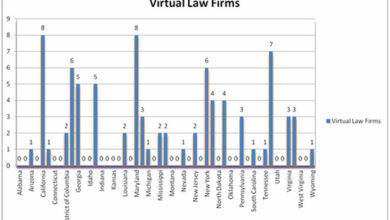How to Negotiate Legal Fees with Your Lawyer
When facing legal issues, one of the most pressing concerns for individuals is the cost of hiring a lawyer. Legal fees can quickly accumulate, leaving many people worried about the financial burden they may face. Fortunately, negotiating legal fees with your lawyer is not only possible but also a common practice. By understanding the factors that influence legal fees and employing effective negotiation strategies, you can ensure that you receive fair and reasonable pricing for legal services. In this article, we will explore the various aspects of negotiating legal fees, providing you with valuable insights and tips to navigate this process successfully.
The Factors Influencing Legal Fees
Before delving into the negotiation techniques, it is essential to understand the factors that influence legal fees. By familiarizing yourself with these factors, you will be better equipped to assess the reasonableness of the fees and negotiate effectively. Here are some key considerations:
1. Complexity of the Case
The complexity of your legal case plays a significant role in determining the fees charged by your lawyer. Cases that involve intricate legal issues, extensive research, and multiple parties tend to require more time and resources, resulting in higher fees. Understanding the complexity of your case can help you gauge the reasonableness of the fees initially quoted by your lawyer.
2. Experience and Reputation of the Lawyer
The experience and reputation of the lawyer also impact the fees charged. Highly experienced lawyers with a well-established reputation may command higher rates due to their expertise and track record of success. However, it is important to note that higher fees do not always guarantee better representation. Evaluating the lawyer’s qualifications and past performance can help you assess the value provided in relation to the fees charged.
3. Time and Effort Required
The amount of time and effort required to handle your case is another crucial factor in determining legal fees. Lawyers typically bill their clients based on the time spent working on a case. The complexity of the legal issues, the volume of paperwork, and the need for extensive research and analysis all contribute to the time and effort required. Understanding the scope of work involved can help you negotiate fees that accurately reflect the expected workload.
4. Geographic Location
The geographic location where the legal services are provided can also impact the fees charged. In areas with a higher cost of living and a competitive legal market, lawyers may charge higher rates to account for their expenses and maintain profitability. Conversely, in regions with a lower cost of living, legal fees may be comparatively lower. It is important to consider the local market dynamics when negotiating fees with your lawyer.
Tips for Negotiating Legal Fees
Now that we have explored the factors influencing legal fees, let’s dive into some effective strategies for negotiating fees with your lawyer:
1. Research and Compare
Before engaging in fee negotiations, conduct thorough research to understand the prevailing rates for similar legal services in your area. Look for lawyers with expertise in your specific legal matter and compare their fee structures. This will provide you with a benchmark to gauge the reasonableness of the fees initially quoted by your lawyer and give you leverage during negotiations.
2. Seek Multiple Opinions
Don’t hesitate to seek multiple opinions and consult different lawyers before making a final decision. By doing so, you can gain a better understanding of your legal options and the associated costs. Additionally, obtaining multiple quotes allows you to compare fee structures and negotiate from a position of knowledge and confidence.
3. Request a Detailed Fee Agreement
When negotiating legal fees, it is essential to request a detailed fee agreement from your lawyer. This agreement should outline the scope of work, the billing structure (hourly rate, flat fee, contingency fee, etc.), and any additional expenses that may be incurred. Having a clear understanding of the fee structure will help you negotiate more effectively and avoid any surprises down the line.
4. Consider Alternative Fee Arrangements
Traditional hourly billing may not always be the most cost-effective option for your case. Discuss alternative fee arrangements with your lawyer, such as flat fees, contingency fees, or hybrid arrangements. Flat fees provide a predetermined cost for specific legal services, while contingency fees are based on the outcome of the case. Hybrid arrangements combine elements of different fee structures. Exploring these alternatives can help you find a fee arrangement that aligns with your budget and legal needs.
5. Emphasize Long-Term Relationship
When negotiating legal fees, emphasize your interest in establishing a long-term relationship with the lawyer. Highlight your potential future legal needs and the value of maintaining an ongoing professional partnership. Lawyers often appreciate clients who will return for future legal matters and may be willing to offer more favorable fee arrangements to foster a lasting relationship.
6. Discuss Fee Caps and Payment Plans
If you have concerns about the total cost of legal representation, discuss fee caps and payment plans with your lawyer. A fee cap places a limit on the total fees that can be charged for a particular case, ensuring that costs do not exceed a predetermined amount. Payment plans allow you to spread out the payment of legal fees over an extended period, reducing the immediate financial burden.
7. Address Inflated Time Estimates
If you believe that your lawyer’s time estimates are inflated or unreasonable, discuss your concerns openly. Ask for a breakdown of the time spent on various tasks and question any discrepancies or excessive time allocations. By addressing inflated time estimates, you can negotiate for more accurate and reasonable billing.
8. Be Prepared to Compromise
Negotiating legal fees requires a willingness to compromise. Keep in mind that lawyers are professionals providing valuable services, and their expertise comes at a cost. While it is essential to seek fair pricing, be open to finding a middle ground that satisfies both parties. Negotiation is a collaborative process, and a willingness to compromise can lead to a mutually beneficial outcome.
Case Study: Negotiating Legal Fees in a Personal Injury Lawsuit
To illustrate the negotiation process for legal fees, let’s consider a case study involving a personal injury lawsuit:
John, a victim of a car accident, sought legal representation to pursue a personal injury claim. After consulting with several lawyers, he received fee quotes ranging from $250 to $400 per hour. Recognizing the importance of negotiating fees, John decided to engage in discussions with his preferred lawyer, Sarah.
During the negotiation, John emphasized his interest in establishing a long-term relationship with Sarah and highlighted his potential future legal needs. He also requested a detailed fee agreement that outlined the scope of work, the billing structure, and any additional expenses.
After reviewing the fee agreement, John expressed concerns about the potential total cost of legal representation. Sarah, understanding the financial burden this may impose, proposed a fee cap to alleviate John’s worries. They agreed on a cap of $10,000, ensuring that the fees would not exceed this amount.
Furthermore, John discussed the possibility of a contingency fee arrangement, considering the nature of his personal injury case. Sarah agreed to a hybrid fee structure, combining a reduced hourly rate with a contingency fee based on the outcome of the case. This arrangement provided John with cost certainty, as he would only pay additional fees if his case was successful.
Through open and transparent negotiations, John successfully secured a fee arrangement that aligned with his budget and legal needs. This case study highlights the effectiveness of negotiation strategies in achieving fair and reasonable legal fees.
Conclusion
Negotiating legal fees with your lawyer is an essential step in managing the costs associated with legal representation. By understanding the factors influencing legal fees, conducting thorough research, and employing effective negotiation strategies, you can ensure that you receive fair and reasonable pricing for legal services. Remember to emphasize long-term relationships, consider alternative fee arrangements, and be open to compromise. Through open and transparent communication, you can establish a fee structure that meets your budget while receiving the legal representation you need.
FAQs After The Conclusion:
1. Are legal fees negotiable?
Yes, legal fees are negotiable. Lawyers understand that clients have different budgets and may be willing to negotiate fees to accommodate their needs.
2. How can I assess the reasonableness of legal fees?
Researching the prevailing rates for similar legal services in your area and consulting multiple lawyers can help you assess the reasonableness of legal fees.
3. What are alternative fee arrangements?
Alternative fee arrangements include flat fees, contingency fees, and hybrid arrangements. These options provide alternatives to traditional hourly billing.
4. Can I request a fee cap?
Yes, you can request a fee cap, which places a limit on the total fees that can be charged for a particular case.
5. Should I prioritize the lowest fee quote?
While cost is an important factor, it should not be the sole determinant when choosing a lawyer. Consider the lawyer’s experience, reputation, and qualifications in addition to their fees.
Summary
Negotiating legal fees is a crucial aspect of managing the costs associated with legal representation. By understanding the factors influencing legal fees and employing effective negotiation strategies, you can ensure that you receive fair and reasonable pricing for legal services. Conduct thoroughresearch to compare fee structures and seek multiple opinions before making a decision. Request a detailed fee agreement that outlines the scope of work and billing structure. Consider alternative fee arrangements such as flat fees or contingency fees. Emphasize the potential for a long-term relationship with the lawyer and discuss fee caps or payment plans if needed. Address any concerns about inflated time estimates and be prepared to compromise to reach a mutually beneficial outcome.
A case study can provide further insight into the negotiation process for legal fees. Consider the example of John, who sought legal representation for a personal injury lawsuit. After consulting multiple lawyers, he engaged in negotiations with his preferred lawyer, Sarah. John emphasized his interest in a long-term relationship and requested a detailed fee agreement. Concerned about the potential total cost, he discussed a fee cap with Sarah, and they agreed on a limit of $10,000. They also explored a hybrid fee structure that combined a reduced hourly rate with a contingency fee based on the case’s outcome. Through open and transparent negotiations, John achieved a fee arrangement that suited his budget and legal needs.
In conclusion, negotiating legal fees is a crucial step in managing the costs associated with legal representation. By understanding the factors influencing fees, conducting thorough research, and employing effective negotiation strategies, you can secure fair and reasonable pricing for legal services. Remember to consider the complexity of the case, the experience of the lawyer, the time and effort required, and the geographic location. Seek multiple opinions, request a detailed fee agreement, and explore alternative fee arrangements. Emphasize long-term relationships, discuss fee caps and payment plans, address inflated time estimates, and be prepared to compromise. Through open communication and negotiation, you can establish a fee structure that meets your budget while receiving the legal representation you need.
FAQs After The Conclusion:
1. Are legal fees negotiable?
Yes, legal fees are negotiable. Lawyers understand that clients have different budgets and may be willing to negotiate fees to accommodate their needs.
2. How can I assess the reasonableness of legal fees?
Researching the prevailing rates for similar legal services in your area and consulting multiple lawyers can help you assess the reasonableness of legal fees.
3. What are alternative fee arrangements?
Alternative fee arrangements include flat fees, contingency fees, and hybrid arrangements. These options provide alternatives to traditional hourly billing.
4. Can I request a fee cap?
Yes, you can request a fee cap, which places a limit on the total fees that can be charged for a particular case.
5. Should I prioritize the lowest fee quote?
While cost is an important factor, it should not be the sole determinant when choosing a lawyer. Consider the lawyer’s experience, reputation, and qualifications in addition to their fees.
By following these guidelines and employing effective negotiation strategies, you can navigate the process of negotiating legal fees with your lawyer successfully. Remember to prioritize open communication, research prevailing rates, and consider alternative fee arrangements. By advocating for your needs and finding a mutually beneficial agreement, you can ensure fair and reasonable pricing for legal services.









